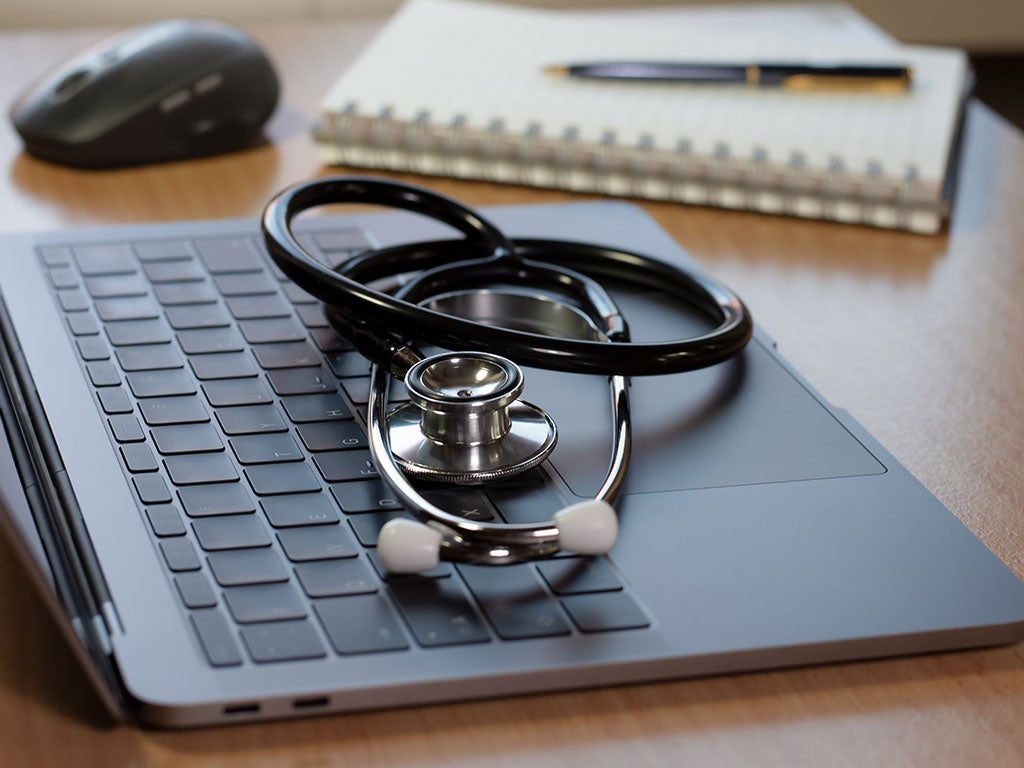
GP's telehealth assessment contributed to patient death
Monday, 8 July 2024
Key messages from the case
Telehealth appointments have changed the way patients interact with doctors when seeking healthcare. While telehealth is suitable for a wide range of patients, it is not appropriate for all patients or in all circumstances. Practitioners need to exercise caution when agreeing to and conducting telehealth appointments and pay close attention to the limitations and risks, as this coroner’s case highlights.
Details of the decision
Ms W was a regular patient of Dr Y for many years. Ms W underwent a colonoscopy. She became unwell several days later and attended the emergency department. On presenting to the ED, Ms W was diagnosed with a bowel obstruction as a result of a femoral hernia. The hernia was repaired and the bowel obstruction resolved. Ms W continued to consult Dr Y regularly after this.
Telehealth assessment
Ms W had a telehealth appointment with Dr Y about three months after the bowel obstruction. During that appointment, she complained of vomiting, fever, constipation and abdominal pain. As part of his assessment and cognisant of the previous bowel obstruction, Dr Y requested Ms W conduct an abdominal self-assessment. Dr Y guided Ms W through the assessment and reported a finding of ‘no abdominal mass present’. Ms W also reported that her abdominal pain was different from the pain she experienced when she suffered the bowel obstruction.
Dr Y concluded that Ms W was suffering from gastroenteritis and wrote a prescription for an antiemetic advising Ms W to stay hydrated. Dr Y invited Ms W to have an in-person appointment however Ms W declined. This was not documented.
The following day Ms W’s condition deteriorated and she died at home as the result of complications from an acute bowel obstruction.
Outcome
The coroner was critical of Dr Y, particularly his over reliance on Ms W’s ability to self-assess. Dr Y’s reliance on the patient’s self-diagnosis and own physical assessment of her abdomen was criticised and described in the expert evidence as “clearly flawed”.
The coroner noted that Ms W’s reluctance to attend an in-person consultation resulted in Dr Y downplaying the significance of her reported symptoms. The coroner found, given Ms W’s symptoms, that Dr Y should have provided a “strongly worded request” rather than an invitation for Ms W to attend an in-person consultation. The coroner’s view was that if this had occurred, Ms W would have accepted Dr Y’s advice and attended in person. Dr Y’s request and Ms W’s refusal should have been documented by Dr Y.
Key lessons
When conducting a telehealth consultation, it is important to be aware of situations where your ability to provide high quality healthcare is limited. These situations include when:
- a patient has potentially serious, high-risk conditions that require a physical examination
- a physical/internal examination is required to support clinical decision making
- a patient’s ability to communicate by telephone or video consultation is compromised.
If you find yourself in a telehealth consultation in such a situation, it is important to clearly explain to the patient the limitations of your assessment and the associated risks. Urge them to attend your clinic or a hospital for an in-person consultation.
Document your discussions with the patient, along with the notes of your clinical assessment, investigation results, treatment decisions and any refusal to act on your advice.
Be wary of relying on a patient’s ability to self-examine or self-diagnose, particularly in the context of telehealth appointments.
References and further reading
RACGP: Guide to providing telephone and video consultations in general practice
Medical Board of Australia: Telehealth consultations with patients
More information
For medico-legal advice, please contact us here, or call 1800 128 268, 24/7 in emergencies.
The case discussed in this publication is based on a real case. Certain information has been de-identified to preserve privacy and confidentiality. The information in this article does not constitute legal advice or other professional advice and should not be relied upon as such. It is intended only to provide a summary and general overview on matters of interest and it is not intended to be comprehensive. You should seek legal or other professional advice before acting or relying on any of its content.
More ways we can help you
Our CPD courses for Avant members
Tick off some CPD hours and learn more with our in-depth eLearning courses, free for Avant members. Our courses include education activities, reviewing performance and measuring outcomes.



